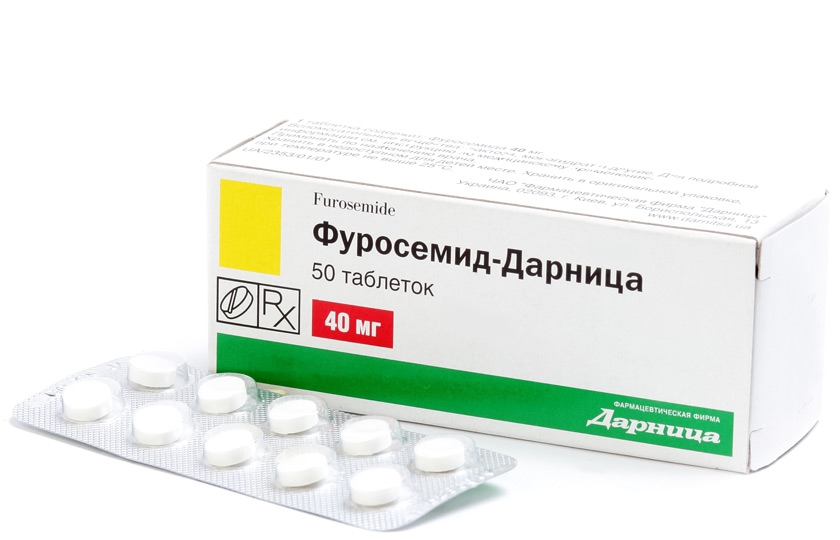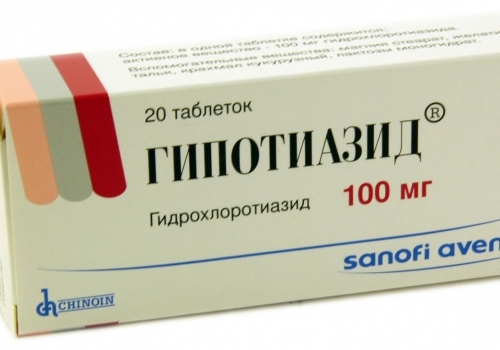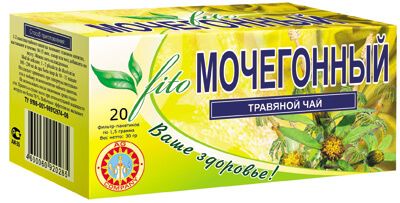Diuretics under pressure - names and features of the application
Hypertension is considered a problem of the 21st century, as the incidence of hypertension is increasing every year. The reason for this is a stressful lifestyle, environmental degradation, poor-quality food - all this leads to cardiovascular problems that require complex drug treatment. Diuretics at high pressure are included in the basic algorithm for the treatment of hypertension and other pathologies associated with an increase in pressure, and are called diuretics. That is why pharmacological companies produce a huge number of drugs that can lower blood pressure with a diuretic effect.
Hypertension is a condition in which high blood pressure is observed, which causes such symptoms: dizziness, nausea, and even vomiting. In the early stages of the disease, symptoms appear slightly, but high blood pressure is dangerous for the development of a cerebral stroke and other pathological conditions that cause complications. Blood pressure (BP) in hypertension can rise sharply against the background of stress, overwork, so it is important to have drugs on hand to quickly and safely reduce pressure. It is these drugs that include diuretics, which in turn are divided into various groups.
Symptoms of hypertension
Hypertension is manifested by pain in the head, mainly in the back of the head due to increased pressure. With intracranial pressure (ICP), dizziness appears, visual acuity may decrease, there is a feeling of nausea, and sometimes vomiting. Consequently, a person feels worse, his heart may hurt.
The intensity of the manifestation of symptoms depends on the stage of hypertension. In the first degree, the pressure rises periodically, rarely exceeding figures above 160 per 100 mm Hg. Doctors try to treat mild degrees of the disease in a non-drug way. It often helps to give up bad habits, adjust the diet and therapy aimed at stabilizing the psycho-emotional state.
With the second degree of hypertension, the pressure can rise to 190 to 110 mm Hg. Art., which causes a vivid clinical picture. First of all, the vessels of the brain and the retina of the eyes suffer. To reduce pressure, antihypertensive drugs are prescribed in combination with a diuretic. In old age, such medications will have to be taken for life.
Important! Only a qualified doctor will be able to choose a diuretic that will gently act on the human body and will not harm.
The third degree of hypertension is considered severe, in which the pressure can rise to 200 per 100 mm Hg. Art. and often exceed these figures. The patient is threatened by various complications from both the cardiovascular system and internal organs. Be sure to show drugs that reduce blood pressure, including diuretics. Alternative methods of treatment in this condition will be useless.
Diuretics
Before analyzing what diuretics are for lowering blood pressure, you need to understand what their action is aimed at. Diuretics are simply diuretics. Due to the intake of diuretics, the amount of urine that is excreted from the body increases. Diuretics suck fluid out of body tissues.
In hypertension, the diuretic taken is necessary to reduce pressure on the vascular-venous system. This allows you to stabilize blood pressure. There is a certain classification of diuretics, which differ in duration of action, composition and side effects.
In total, there are 5 classes of diuretic drugs:
- Loopback.
- Sulfanilamide.
- Thiazide.
- Combined.
- Vegetable.
The plant group of diuretics includes various herbs, infusions, decoctions, fees, that is, folk methods of treatment. They are used in the early stages of hypertension. Despite their naturalness, many drugs have contraindications and should be taken under the supervision of a doctor.
Loop diuretic group
Diuretics from this group are indicated for patients with high blood pressure numbers, as they quickly lower blood pressure, so they are prescribed in emergency cases. Urination occurs in the shortest possible time, in addition, a large volume of fluid is excreted. These drugs are used only in adult patients. Loop diuretics directly affect the renal system, which increases the excretion of water.
Note! The drugs of this group, in addition to hypertension, are prescribed in the presence of severe swelling, for the treatment of chronic heart failure.
Since the drugs manage to quickly reduce the pressure, they are prescribed in short courses so as not to harm the patient.
Popular means from the group of loop diuretics:
- Furosemide.
- Lasix.
- Diuver.
- Torasemide.
When taking these funds, you must definitely study the instructions, not to mention consulting a doctor. The fact is that many drugs of this series are incompatible with other medicines. With the simultaneous use of anti-inflammatory drugs, the effect of diuretics decreases. Simultaneous use of diuretics and blood thinners can cause bleeding. The appointment of Digitalis and Anaprilin along with diuretics is also incompatible, complications from the work of the heart may appear.
The most inexpensive and proven drug is Furosemide. Of the minuses of this tool is a large number of contraindications and the impossibility of long-term use. In such cases, Diuver comes to the rescue, which can be taken longer, but its price is several times higher.

Any diuretic drug has contraindications, and loop diuretics are no exception.
Main contraindications:
- the presence of kidney stones;
- state of acute renal failure;
- chronic diseases of the kidneys and pancreas such as glomerulonephritis and pancreatitis;
- state of liver failure;
- myocardial infarction.
Important! Since diuretics are taken not only for hypertension, they cannot be prescribed for low pressure.
Diuretic drugs can be purchased at the pharmacy network only by prescription. In no case should you self-medicate.
A group of thiazide diuretics
The action of the drug in this group is directed to the area of the distal tubules in the kidneys, which causes active excretion of fluid. Diuretics are used more often with average numbers of high blood pressure, they act softer than the group of loop diuretics, but stronger than folk remedies.
The undoubted advantage of drugs is the possibility of long-term use of just one tablet per day. Medicines are most effective in the initial stage of hypertension, especially in old age.
The fixed assets are named:
- Hypothiazide;
- Chlortalidone
- Dichlorothiazide.
Hypothiazide is prescribed most often, since it has an affordable price and a long-lasting effect. Contraindications include renal and hepatic insufficiency, hypotension, uncontrolled diabetes mellitus, and Addison's disease.
Side effects of the drug:
- the appearance of either a feeling of fatigue, or, conversely, excessive excitability;
- development of tachycardia;
- signs of nausea and vomiting;
In rare cases, there may be seizures, muscle pain. Hypothiazide is best at lowering blood pressure in combination with other drugs.
 Thiazide diuretics do not have such an “aggressive” form of action, unlike loop diuretics, but at the same time they still do their main task - lowering blood pressure.
Thiazide diuretics do not have such an “aggressive” form of action, unlike loop diuretics, but at the same time they still do their main task - lowering blood pressure. Often, thiazide and loop diuretics are prescribed in conjunction with potassium-sparing diuretics. Their action is aimed not only at removing fluid from the body, but also at preserving potassium ions. With high pressure, Veroshpiron from this group of drugs copes the fastest. With ICP, the combination of potassium-sparing and other diuretics is not recommended in the presence of diabetes mellitus and kidney pathologies.
Other drug groups
Sulfa (thiazide-like) diuretics include Indapamide. The drug has a weak effect, therefore it is used for long-term treatment in the initial stages of the disease. The effect occurs in 2-3 weeks and lasts for several months. Indapamide is considered one of the safest diuretics. You can not prescribe Indapamide to children and pregnant girls, patients with hyperuremia and with a disorder of water and electrolyte balance.
Considerable popularity is enjoyed by folk diuretics with the appearance of high pressure, that is, herbal preparations. Herbs such as peppermint, bearberry, lungwort have diuretic properties. And also remove liquid infusions and decoctions, which include birch buds, lingonberries, burdock.
 Thiazide-like diuretics do not have such a pronounced effect as their "big brothers" and are prescribed in the initial stages of the disease and have a long-lasting effect.
Thiazide-like diuretics do not have such a pronounced effect as their "big brothers" and are prescribed in the initial stages of the disease and have a long-lasting effect. Many doctors prefer to prescribe combined diuretics. These include Diazid, Triampur compositum, Diursan and others. It is worth remembering that if the pressure fails in the body, it is necessary not only to treat hypertension, but also to find its causes. With high pressure, first of all, it is necessary to conduct an examination of the kidneys, brain and cardiovascular system.




